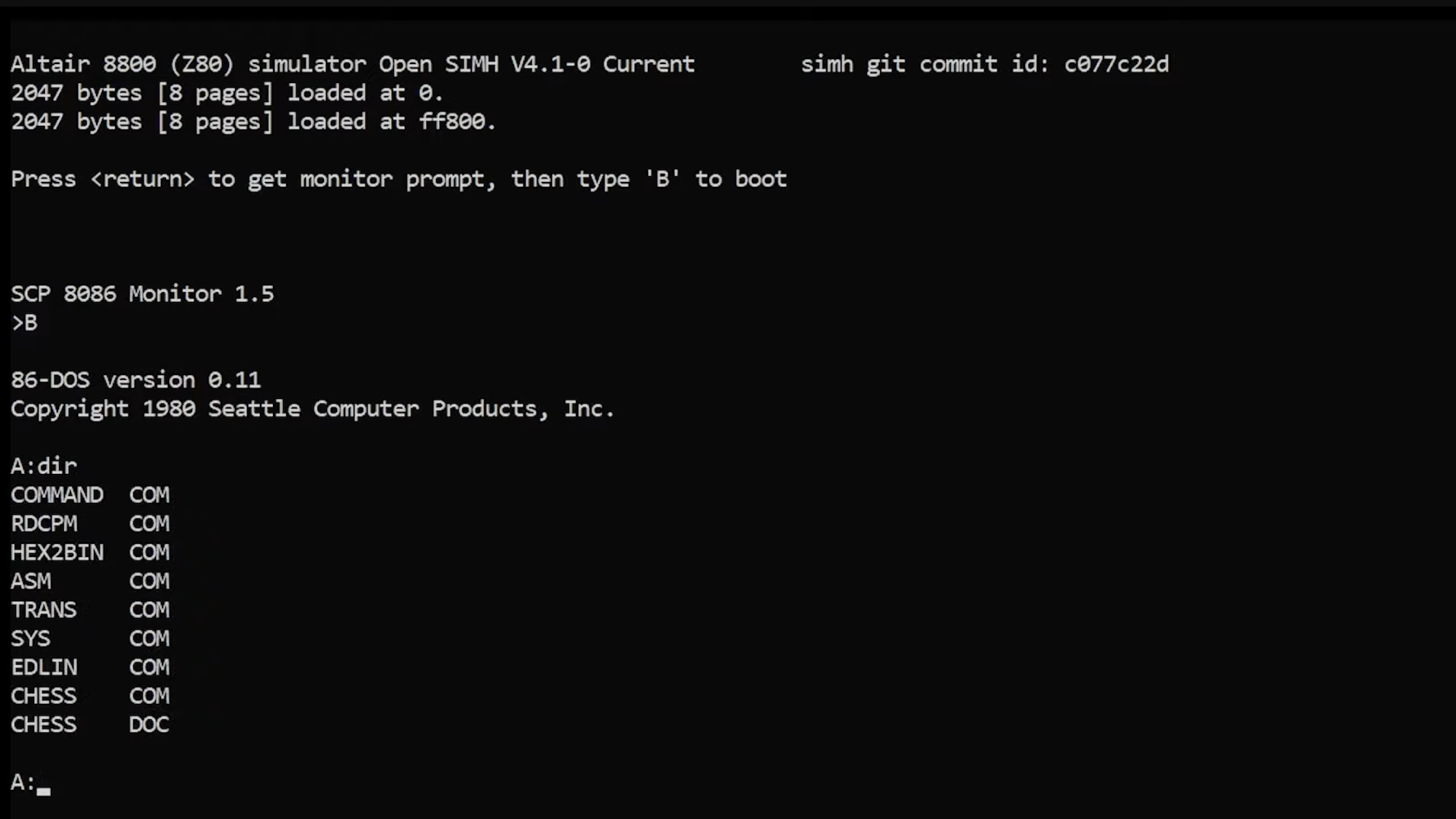

Although long-abandoned for far more advanced successors, MS-DOS remains a pivotal piece of computer history. Released to the public on the very first IBM Personal Computers back in 1980, MS-DOS quickly became a standard operating system within the growing PC market throughout the ensuing decade. While many versions are still preserved on their original floppy disks, a new archival discovery appears to be the influential program’s earliest known forerunner still in existence.
As recently spotted by The Register and Ars Technica, “vintage code enthusiast” and flight simulator designer Gene Buckle recently unearthed a 86-DOS version 0.1-C floppy disk, reportedly the operating system’s oldest known, still accessible iteration—one that predates even the earliest public version of MS-DOS.
[Related: Yes, the Pentagon still uses floppy disks for nuclear launches.]
Contrary to what many may think, MS-DOS wasn’t actually the creation of Microsoft—the then-newcomers licensed the disk system from a company called Seattle Computer Products (SCP) in 1981. Before Microsoft’s “MS-DOS” rebrand, SCP first called their OS “Quick’n’Dirty Operating System” (QDOS), but soon swapped over to the more marketable 86-DOS name. It’s this earliest version, stored across 9 files, that Buckle found late last month while archiving a backlog of over 400 8-inch floppy disks gifted to him a few years ago.
Interestingly, Buckle already made history earlier that very same day—by finding a copy of 86-DOS version 0.34. For a few hours, this disk was the oldest known MS-DOS precursor… until the subsequent 0.1-C find. Finding a working copy 0.1-C is akin to stumbling across a “holy grail” of computer history, one commenter claims on the Internet Archive entry uploaded by Buckle.

According to Buckle, even more discoveries may be hiding in wait. Many more original 8-inch floppy disks are in his to-archive queue, including what he believes could be a complete set of MicroPro products such as WordStar and SpellStar—some of the earliest word processing and spellcheck programs. Different operating system disks may also lurk among the remaining floppies. If that weren’t enough, then there are the 5.25-inch disks to explore—all 1,500 or so, according to The Register.
Thanks to Buckle uploading 86-DOS v. 0.1-C to the Internet Archive here, tech wizards are welcome to give the old system a boot-up through an OS emulator such as the Open SIMH Project. For anyone who for whatever reason isn’t skilled in bringing vintage computer operating systems back to life: feel free to check out this video from NTDev showing 86-DOS version 0.1 in (limited) action. And for a deeper dive into the intricate, fascinating history of DOS, there’s this essay series courtesy of the OS/2 Museum.
